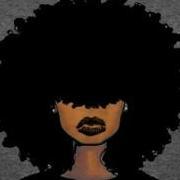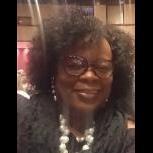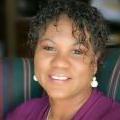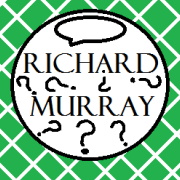-
Posts
3,651 -
Joined
-
Last visited
-
Days Won
118
richardmurray's Achievements
Single Status Update
See all updates by richardmurray
-
MY THOUGHTS AND THE ARTICLE
well i read the article, the argument by tyree is dysfunctional, the book was written in 2001, tyree admits the strategem would had been successful in 2010, so... saying it isn't how the industry operates in 2024 is dysfunctional. This is about a moment in the usa, this is not meant to be how the usa was before or after, but this was a real scenario. I wonder why everett had nothing to say. And the argument from some blacks against "urban lit" is no different than italians against italian mob movies . having people look like you represented in a way you don't like doesn't define you, but doesn't make it unreal. Some black people were and are step and fetchit's this doesn't mean I am or any other black person is one of them. Cord Jefferson's question shows he is either ignorant of black history or in denial about black experiences in the usa. For anyone who reads up to this point, let me say something that it seems isn't common knowledge in the usa. Most black people in the usa have always been unhappy or miserable, always. Yes from the colonial times to now a minority in the black populace in the usa has been happy. But, an overwhelming majoirty 95% to 75% of black people in the usa have been terrorized by whites in the usa or by the system of government in the usa designed or ruled by whites. I don't see how anyone black, non black or other can not accept that simple truth. Yes, obama exist, yes, michelle obama exist, yes oprah and the william sisters and lebron james exists. Ok most black people in the usa are miserable, are in pain, are unhappy, have dealt with trauma and they come from a centuries line of black people who felt worse. Said negativities are not the only things we have to offer to culture and have never been the only things. We made negro spirituals that uplift people today before the usa was founded. we made lues music that is utilized in so many asian animated works to characterize strong thoughtful characters. we made jazz that is considered world music and one of the utmost signs of improvisation. Cord Jefferson suggested black people's stories of pain or suffering or anguish or anger are too large in quantity, are too present. what? We made brer rabbit, which was referred to in positive fantasy star trek to save a bunch of defenseless humanoids from corruptions in and out of the fantasy united nations institution called the federation , with earth itself as its usa .saundra and others in the article's great flaw is speaking of the now. They can't get out of the now in assessing the film. Many black people in the usa like to say , black folk need to forget the past, but does that mean we are to lie about it, or judge all only in the modern?
ARTICLE

Some urban lit authors see fiction in the Oscar-nominated ‘American Fiction’
BY HILLEL ITALIE
Updated 10:41 AM EST, March 5, 2024
NEW YORK (AP) — Omar Tyree, author of such urban lit narratives as “Flyy Girl” and “The Last Street Novel,” recently went to see the Oscar-nominated movie “American Fiction.”
“I loved the emotions of the family,” Tyree said of the comic drama starring best actor nominee Jeffrey Wright as the struggling author-academic Thelonious “Monk” Ellison, Leslie Uggams as his ailing mother and supporting actor nominee Sterling K. Brown as his troubled and unpredictable brother. “I love seeing how Monk tries to bring the family unit together and just seeing Black people trying to work things out.”
But when asked about the film’s featured storyline — Monk finds unexpected success when he publishes a crude novel under the assumed identity of ex-con Stagg R. Leigh — Tyree laughed and gave a nod to “creative license.”
“The whole idea that he’s going to sell a lot of books by keeping it raw, in real life it doesn’t work like that,” he said. “That kind of book would have been stronger in the early 2000s.”
“American Fiction,” nominated for a best picture Academy Award and in four other categories, was adapted from Percival Everett’s “Erasure,” a 2001 novel that came out when a genre alternately called “urban lit,” “urban fiction,” “street lit” or “hip-hop fiction” was peaking, especially among young Black readers. Novels like Sister Souljah’s “The Coldest Winter Ever,” Shannon Holmes’ “B-More Careful” and Teri Woods’ “True to the Game” were selling hundreds of thousands of copies while major publishers, who had initially ignored the genre, were offering large advances in search of the next hit.
The urban lit genre dates back at least to 1967, and the release of the memoir “Pimp,” written by Robert Maupin, who was in jail when he began writing under the name Iceberg Slim and built a large word-of-mouth following. He inspired another street lit pioneer, Donald Goines, author of the Kenyatta urban crime series and other works from the 1970s that influenced such hip-hop stars as Tupac Shakur, who would famously declare, “Machiavelli was my tutor, Donald Goines my father figure.”
Urban lit is still around, but no new releases approach the heights of 20 years ago. According to Circana, which tracks around 85% of the print retail market, the genre sold around 380,000 copies in 2023, far less than the total sales for “The Coldest Winter Ever.” Many leading urban lit authors these days are either independently published — among them Black Lavish and Mz. Lady P — or released through Kensington Publishing Corp., which still has cut back over the past decade.
“At one point, the majority of the books on our list that were written by Black authors would have been categorized as urban or street lit,” says Vida Engstrand, Kensington’s director of communications. Because of changes in the “retail landscape and reader interest,” Kensington now offers a much broader selection, with “very few front list titles that fall squarely in the category of urban lit,” she says.
Everett, an award-winning author whose novels include “The Trees” and the upcoming “James,” was unavailable for comment, his publisher said.
Monk is inspired to write his pseudonymous book after looking through a bestseller titled “We’s Lives In Da Ghetto” and reading such sentences as “Momma says I be the ’sponsible one and tell me that I gots to hold thing togever while she at work clean dem white people’s house.” After failing to catch on as a literary author, he is offered a six-figure book deal and seven-figure movie deal for his profanely titled novel.
Stagg R. Leigh is praised by critics and even wins a prestigious literary prize. But few were calling Teri Woods or Shannon Holmes likely Pulitzer winners. The publishing community debated whether urban lit should be condemned for reinforcing stereotypes about Black life — stereotypes parodied by Everett in his novel — or welcomed for its blunt portraits of crime and poverty and for attracting new audiences.
“I’ve heard a lot of people within the Black community who have that viewpoint, that urban lit doesn’t reflect all of us,” says author Porscha Sterling. “And while it’s important to show the Black community in multiple ways, I do think it’s important to have a well-rounded view that includes everyone.”
“In my opinion, it was wrong to characterize these books as different from other Black literature,” says Malaika Adero, an author, agent and executive editor for AUWA, a Macmillan imprint led by Questlove. “We’ve had all kinds of classic books that dealt with the underground economy and the ghetto and weren’t classified as hip-hop lit.”
Monk’s novel has some parallels to a bestseller from the 1990s, Sapphire’s “Push,” an acclaimed and controversial novel about a pregnant teen from Harlem that begins in broken English, but becomes more traditional as the girl learns to read and write. At the time, Sapphire (a pen name for Ramona Lofton) was a little-known poet who received a large advance and attracted the interest of Hollywood. The book became the Oscar-winning movie “Precious.”
“American Fiction” director Cord Jefferson, nominated for best adapted screenplay, has said that reading “Erasure” reminded him of conversations he had with friends over the years.
“Why are we always writing about misery and trauma and violence and pain inflicted on Blacks? Why is this what people expect from us? Why is this the only thing we have to offer to culture?” Jefferson often wondered, he told The Associated Press last fall.
One urban lit author, Saundra, said she found “American Fiction” funny, but “a tad bit overdramatized,” adding she doubted a novel like the one Monk wrote would be so welcomed now. Sterling, whose novels include the series “Gangland” and “Bad Boys Do It Better,” said she identified with Monk’s frustration at not being understood and recognized, but also said the satire in “American Fiction” left her feeling “misunderstood”
“I don’t know any people who write like that in the urban lit genre,” she said.
Author K’Wan Foye, known as K’Wan, says he related well to the movie, even if it was “poking fun” at urban lit. He remembers being encouraged 20 years ago to write “something really ghetto,” what became his popular “Hood Rat” series, and showing up for a meeting at St. Martin’s Press wearing a Biggie Smalls-style suit.
“They thought it was some kind of persona, the way Stagg R. Leigh is in the movie,” K’Wan said. “And I was like, ‘No, this is who I am.’”
If “Erasure” had been published now, the protagonist would likely have chosen a different kind of book to parody the commercial market, authors and publishers say. Tyree thinks he would have been writing nonfiction, maybe working on a celebrity confessional like Jada Pinkett Smith’s “Worthy.” Shawanda Williams, who oversees the Black Odyssey imprint of Kensington, cites the 2022 bestseller “The Other Black Girl,” the surreal tale of a Black editorial assistant at a publishing house.
Saundra, whose novels include “Hustler’s Queen” and “It Ain’t About the Revenge,” says the urban lit market has faded enough that she’s trying a different kind of book. In 2025, Kensington will publish “The Treacherous Wife,” which she calls “domestic suspense.”
“Times are changing,” she says, “and I think readers are looking for suspense, something everyone can relate to.”
URL








.thumb.jpg.ed52910791d00308abb8c218695bec88.jpg)



